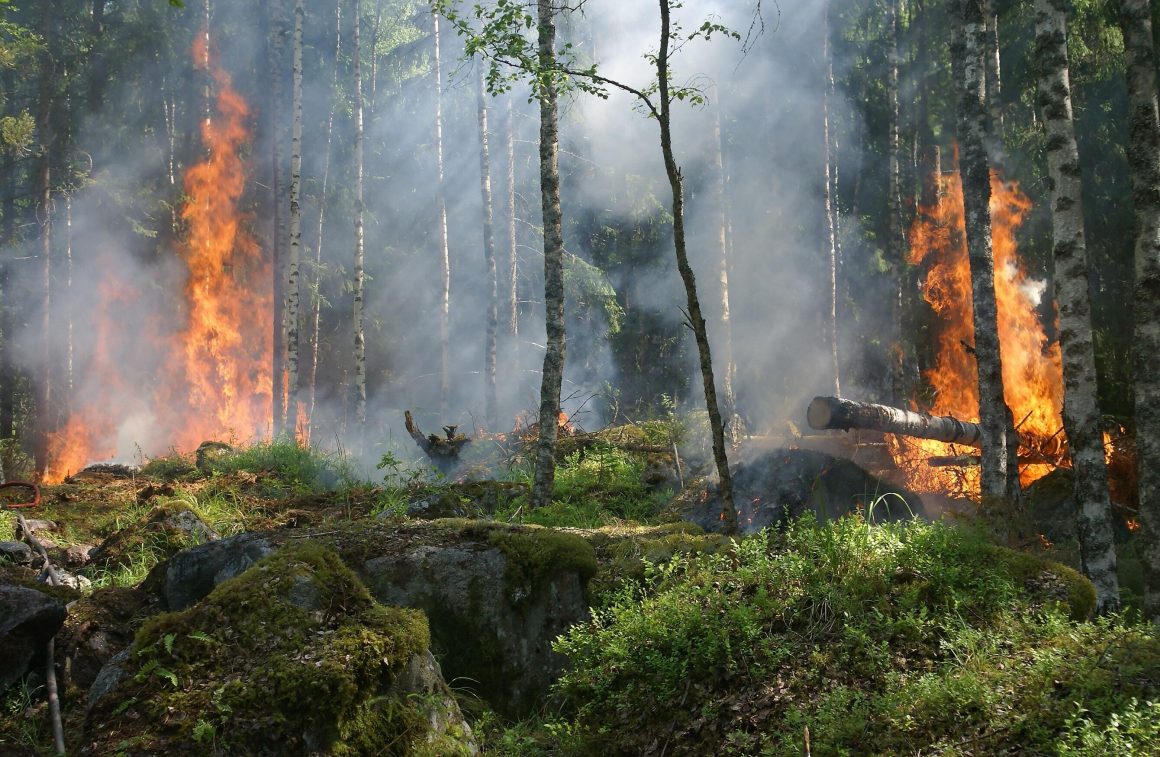
Playing with fire: Alberta in the age of climate-driven disasters
By Christian Lowry, October 13 2023—
As the roar of flames becomes louder than ever, the silence surrounding their cause, effects and cure is deafening. Alberta came into its worst wildfire season in decades radically unprepared and so far, its government has learned nothing.
Inaction would have been bad enough, but the United Conservative government’s cocktail of climate change denial, public service cuts, scapegoating, toxic individualism and foot-dragging have combined to make matters far worse than they would have been otherwise.
We never heard the end of it when Rachel Notley’s government cut $15 million from the wildfire budget. The Notley cuts were made before the harrowing Fort McMurray wildfire of 2016. The Kenney cuts went deeper, bleeding $30 million in four years, including the Wildland Firefighter Rappel Program, one of the province’s most effective firefighting assets. Eliminating it barely saved only 6 per cent of the promised amount. We also lost 10 per cent of the contract length extended to wildland fire personnel and one-fifth of our fire lookout towers. Subsequently, massive fires burned 2,079,688 hectares from 2019 through May 2023.
The 2016 Fort McMurray fire alone cost over $9 billion. Subsequent fire costs have not yet been tallied but will likely be comparable. Then there are the hidden health costs caused by exposure to smoke, along with the psychological costs of living under the threat of death, air pollution, loss of property and evacuation.
Danielle Smith’s government isn’t learning much from the disaster abetted by her party’s policies, preferring to blame phantom arsonists rather than climate change. When arson suspects are lacking and evidence of arson itself is practically nonexistent, climate deniers move the goalposts and categorize all human-caused fires as arson. When fire personnel and experts contradicted her claims, Smith ignored them and promised to hire an outside investigator instead.
Moreover, arsonists didn’t gut the wildfire budget or create the climate disasters abetted by the province’s sycophantic dependence on the fossil fuel industry. Climate change lengthens the fire season, dries out fuels, reduces the water supply available for suppressing fires and strengthens storms that help spark them.
Scapegoating leads average people to blame isolated factors and hope next year will be better, instead of noticing larger trends and demanding the change they deserve. In the meantime, these fires will break fire and smoke records, threaten dozens of communities and trigger mass climate anxiety and illness.
Help did arrive and the fires were put out, but that was more attributable to outside help than Alberta’s political genius. The fantasy of Albertan independence was disgraced when Smith’s government begged for assistance from Ottawa, which was readily provided.
By June 2023, Alberta had imported over 2,000 firefighters from other countries and provinces. While they were indispensable, their presence was a reminder of how flammable the situation was.
Hundreds of firefighters arrived from South Africa, where wildland firefighting takes place under markedly different circumstances. Due to water shortages, different vegetation, and average fire size, training and tools are much different in South Africa than Canada, which requires these firefighters to be retrained upon arrival. Some crews had to wait 12 days between being requested and their first fire response in Canada.
Worse still, the places that sent these firefighters will have horrific wildfires of their own. In the last few years, wildfires killing scores of people have not been uncommon. California endured its deadliest wildfire in 2018, which killed 85 people, and in 2019, Australia suffered nearly 450 deaths.
Wildfire agencies across the country are also relying on city firefighters, most of whom are volunteers with day jobs aside from these duties. This can’t continue forever. Wildland firefighters need to be attracted and retained. But Alberta can’t keep making conditions worse for them and expect them to appear.
In short, Alberta — and wildfire-vulnerable regions in general — needs to stop tinkering with the problem and adopt comprehensive solutions. These include making a net-zero transition, making new construction fire-resistant, stopping the slashing of public services, and blaming irrelevant factors over well-documented causes. Only these steps will prepare us for future disasters and cope with the damage caused so far.
This article is a part of our Opinions section and does not necessarily reflect the views of the Gauntlet editorial board.
